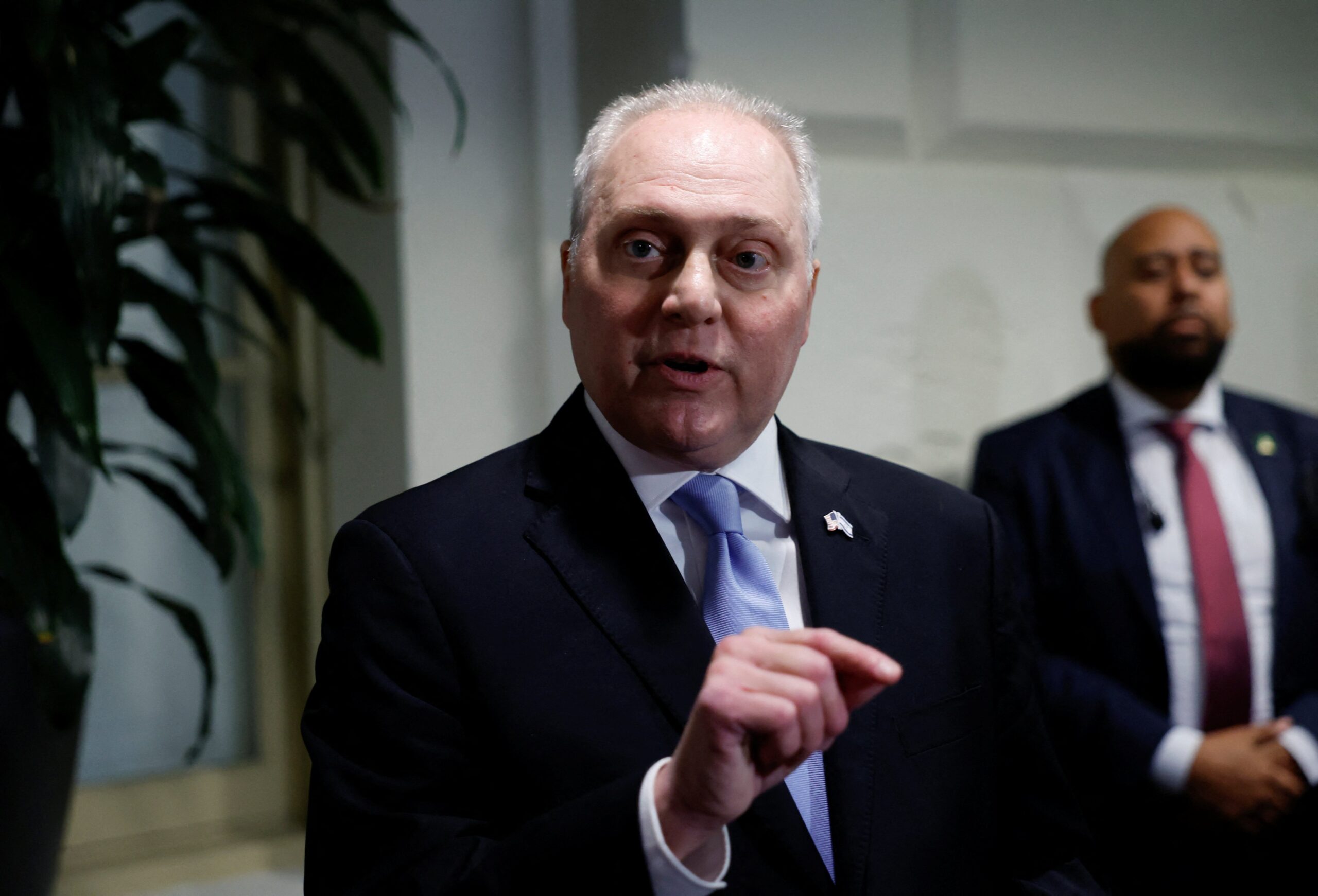(OSV News) — House Majority Leader Steve Scalise, R-La., withdrew his name from consideration for Speaker of the House Oct. 12, a day after he received his party’s nomination.
“If you look at where our conference is, there’s still work to be done,” he told reporters. “Our conference still has to come together and is not there. There are still some people that have their own agendas, and I was very clear: We have to have everybody put their agendas on the side and focus on what this country needs. This country is counting on us to come back together. This House of Representatives needs a speaker, and we need to open up the House again, but clearly not everybody is there and there’s still schisms that have to get resolved.”
On Oct. 11, Scalise defeated House Judiciary Chair Jim Jordan, R-Ohio, in a 113-99 vote among Republicans, several days after the ouster of former House Speaker Kevin McCarthy, R-Calif.
But the House went into recess later the same day without holding a floor vote on the speakership, as it became clear that Scalise did not yet have 217 Republican votes on the floor to become speaker, assuming every Democrat votes for Minority Leader Hakeem Jeffries, D-N.Y.
“I never came here for a title,” Scalise said Oct. 12. “I’ve had some great titles — I’m majority leader of the House, and I love the job I have. I’ve had big challenges in my life. I’ve been tested in ways that really put perspective on life. Really, the 2017 shooting, when I didn’t know if I was going to make it out alive, taught me what’s important in life. That’s my family, my faith, and I am blessed beyond belief. I have absolutely all the right perspective, and I still have a deep, deep passion for making sure we get our country back on track, and get our conference fixed again.”
Scalise, who is Catholic, was shot and wounded in a 2017 shooting at a congressional baseball practice and is currently battling cancer. He alluded to overcoming challenges in a letter to colleagues announcing a bid for speaker.
“There’s some folks that really need to look in the mirror over the next couple of days and decide, are we going to get it back on track, or are they going to try to pursue their own agenda,” he said. “You can’t do both. And I think we’re going to get there.”
McCarthy was ousted as speaker Oct. 3, after eight House Republicans, prompted by Rep. Matt Gaetz, R-Fla., joined with Democrats to remove him from the role in the first such instance in U.S. history, leaving House Republicans without a clear successor to lead the chamber’s Republican majority. Scalise emerged alongside Jordan as top contenders.
While Gaetz expressed support and Jordan reportedly said Oct. 11 that he would nominate Scalise on the House floor, other representatives, including Rep. Marjorie Taylor Greene, R-Ga., withheld support. Greene suggested that she would not support Scalise’s nomination because he is currently fighting cancer.
The House speaker race has become more critical following Hamas’ Oct. 7 attack on Israel.
Scalise had told reporters that the first resolution he would pass as speaker would “make it clear that we stand with Israel,” a close U.S. ally.
Without an elected speaker, the House may not be able to pass emergency aid for Israel or pass a spending bill to prevent a government shutdown in November. It is also unclear whether the temporary speaker, Rep. Patrick McHenry, R-N.C., whose job is mostly to oversee the election of a new speaker, is able to receive classified briefings.










































